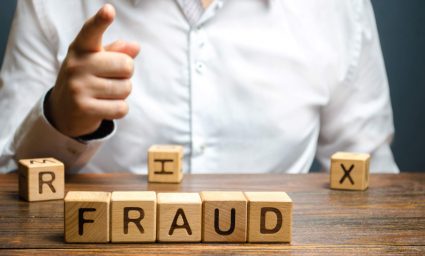 When you are grappling with financial challenges, it is completely understandable to feel overwhelmed and eager to find solutions that could potentially improve your circumstances. The day-to-day struggle of managing expenses can make offers that seem generous look incredibly appealing and nearly impossible to resist. While we consistently caution against the dangers of high-interest payday loans and excessive credit borrowing, it’s crucial to maintain a healthy level of skepticism even in the face of offers that appear to provide genuine financial assistance. Often, the funds that seem readily available to you are, in reality, cleverly disguised traps set by unethical scammers eager to exploit your vulnerability during tough times.
When you are grappling with financial challenges, it is completely understandable to feel overwhelmed and eager to find solutions that could potentially improve your circumstances. The day-to-day struggle of managing expenses can make offers that seem generous look incredibly appealing and nearly impossible to resist. While we consistently caution against the dangers of high-interest payday loans and excessive credit borrowing, it’s crucial to maintain a healthy level of skepticism even in the face of offers that appear to provide genuine financial assistance. Often, the funds that seem readily available to you are, in reality, cleverly disguised traps set by unethical scammers eager to exploit your vulnerability during tough times.
Currently, a wide array of scams are specifically designed to prey upon individuals’ financial vulnerabilities, making it vital to remain vigilant and well-informed. A key principle to keep in mind when identifying potential scams is this: if an offer seems too good to be true, it likely is. In this detailed guide, we will explore various scams that specifically target individuals experiencing financial difficulties, equipping you with the essential knowledge to differentiate between authentic opportunities and deceptive schemes that could jeopardize your financial security.
Protecting Your Tax Refund: Understand Your Rights and Responsibilities
There are legitimate paths available for claiming tax refunds related to various expenses, including work-related tools, uniforms, and mileage. However, navigating these processes requires engaging with a tax rebate services company, necessitating that you grant them access to your tax records. It’s crucial to recognize that no governmental entity, including HMRC, can accurately assess your entitled refund without your proactive involvement or consultation with a qualified accountant. Therefore, exercise extreme caution when you encounter unsolicited messages claiming that “HMRC has a tax refund of £261 waiting for you.” Such communications often present realistic figures, skillfully avoiding the exaggerated claims typical of more notorious scams, like the infamous Nigerian Prince schemes. Instead, these messages may lead you to websites where you could inadvertently divulge sensitive information, resulting in identity theft or substantial financial loss.
To determine whether this type of communication is a scam, it is essential to carefully scrutinize the details of the sender. If you receive a suspicious text message, verify the originating phone number to confirm its legitimacy. It is highly advisable to refrain from responding to such messages and instead contact HMRC directly for verification. Understand that HMRC typically communicates through letters or emails to your registered address, rather than via unsolicited text messages. Furthermore, you now possess the ability to access your online tax account, where you can view official notifications directly from HMRC. If you receive an email, meticulously examine the sender’s address; it should originate from an official HMRC domain. Always avoid clicking on any links provided in dubious messages.
Identifying and Evading the National Insurance Number Scam
Recent reports, including those from the Daily Express, highlight a significant rise in individuals falling victim to the National Insurance scam, which primarily operates through phone calls. This method differs from many other scams in that the scammers may contact you on either your landline or mobile device. The scam typically begins with a distressing message claiming that your national insurance number has been compromised. This alarming tactic is intentionally designed to create a sense of urgency, compelling you to press a button to speak with someone who can assist you. However, taking this action often results in incurring a premium rate for the call while the scammers gather your personal information.
To ascertain whether such a call is legitimate or a scam, remember that reputable organizations will never request that you press a button to continue the conversation. If you find yourself uncertain, simply hang up and conduct a quick online search for the phone number in question. A brief investigation can often reveal whether the number is linked to known scams, enabling you to protect yourself and your sensitive information.
Spotting and Protecting Yourself from the DPD or UPS Delivery Scam
Another common scam involves receiving unsolicited texts or emails claiming that a parcel is awaiting your action. These messages usually urge you to click on a link to provide personal information, which is a significant red flag for potential fraud. To protect yourself, carefully scrutinize the source of the email. Scammers often use distorted or unusual email addresses that do not correspond with legitimate businesses. Additionally, review any recent orders you’ve placed on platforms like Amazon or eBay; these platforms typically offer comprehensive tracking information for your packages.
It’s also important to note that, while carriers like DHL may charge duties on international orders, they always provide you with specific details regarding your shipment and its origin. If you receive vague messages about package deliveries without having placed prior orders, exercise extreme caution. Being well-informed about personal finance scams is crucial to safeguarding yourself from falling victim to such schemes. If financial difficulties make these scams seem appealing, consider reaching out to us; we can assist you with our debt consolidation loans for bad credit. We are dedicated to helping you navigate your financial challenges securely and effectively.
The Article Finance Scams to Watch Out For Was Found On https://limitsofstrategy.com


I really appreciate your insights on the importance of remaining skeptical in the face of seemingly helpful financial offers. It’s such a tricky balance to strike—especially when you’re feeling financially vulnerable. I remember a time when I was grappling with unexpected expenses and nearly fell for a “fast cash” deal that looked appealing at the moment. It was only through some quick research that I discovered the unfavorable terms attached.